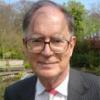Dr Robert Lefever states: “People suffering from cancer, diabetes or heart attacks are grateful when offered help. People who have problems with addictive or compulsive behaviour of any kind will fight back: they want to protect their dependency and get rid of its damaging consequences." Denial is the psychopathology of any addictive disorder, and the first step in any recovery program is to get over this first steep hurdle. There is no proper solution to the disease, unless the true and honest nature of the problem is first of all fully accepted by the patient.
Commenting on a recent report from a King’s College and UCL team published in BJOG on how would-be mothers should seek help early for any symptoms of eating disorders, Dr Lefever says: “Ninety six percent of over eleven thousand women say that they do not have an eating disorder. I anticipate that they would also say that they do not have an addiction problem with alcohol or drugs. The basic psychopathology of any compulsive behaviour is denial. This is what makes it so difficult to treat. After all, why should someone seek treatment for a condition that he or she does not have?"
Something of the order of ten to fifteen percent of the population suffer from addictive or compulsive behaviour, but they do not generally ask for help until they experience painful consequences.
However, when these patients do eventually present, and hopefully before it is too late. Good and effective treatments are becoming increasingly available. Doctors such as Dr Lefever have very much lead the field in this area, and more evidence for the effectiveness of these treatments is becoming apparent.




